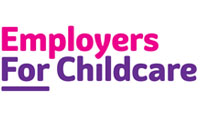The Growth Plan 2022 – how does the Chancellor’s new ‘mini-budget’ affect you?
*Updated 14 October 2022
On Friday 23 September then Chancellor Kwasi Kwarteng outlined the Government’s new Growth Plan which aims to help grow the economy, make it more competitive, and mitigate against the rising cost of living that is facing households across the UK. In this article we give an overview of some of the changes and how these will affect families.
The Chancellor also reconfirmed measures that are designed to reduce the amount that households, businesses and charities are paying for energy, including capping electricity and gas costs for the next two years and making one off payments to households that use oil.
Household Incomes – cut to National Insurance
The first measure that will affect employees is the reduction in the rate of National Insurance which will be applied from 6 November 2022.
In April 2022 the government increased the National Insurance rate by 1.25% to 13.25%, affecting all employees who earn more than £12,570. This decision will now be reversed meaning that from 6 November 2022 the National Insurance rate will revert back to 12%.
Employees who earn more than £12,570 per annum, and the self-employed, will therefore pay less National Insurance. Anyone who is earning less than £12,570 will make no savings from this announcement as they are exempt from paying National Insurance Contributions
The Treasury has estimated that almost 28 million people in the UK will benefit from the cut, retaining an average of £135 in 2022, rising to £330 in 2023/24, approximately £27.50 per month.
Employers will also save, as they will not have to pay as much in employers National Insurance.
It was also confirmed that the planned Health and Social Care Levy, set to come into effect from April 2023, will not now be implemented.
Household Incomes – cut to Income Tax
From April 2023 there will be changes to the rates of Income Tax that are designed to further increase the amount of net pay that working families take home, so that they have more money in their pockets in this period of increased outgoings.
Basic rate taxpayers will benefit from a reduction in the Basic Rate of tax from 20% to 19%. The government has estimated that the change to the basic rate of tax will benefit 31 million people, with an average reduction of £170 in tax paid per annum, approximately £14 per month.
During the mini Budget, the Chancellor also announced that Additional Rate taxpayers, those earning over £150,000, would have the 45% rate of tax scrapped meaning the maximum rate of tax they would pay would be 40%. However, on 3 October 2022 the Chancellor confirmed that the abolition of the Additional Rate of Income Tax, 45%, will not be going ahead, meaning no change for these taxpayers.
It is important to note that income tax bands are different in Scotland.
How these changes affect Childcare Voucher users
The change in the National Insurance rate and the later change in Income tax will mean a small reduction in the savings for basic rate taxpayers using the Childcare Voucher scheme. This scheme, which has been closed to new entrants since 2018, allows parents to make a saving on their Tax and National insurance to help towards their childcare costs. The annual savings for a basic rate taxpayer sacrificing the maximum £243 per month from their salary towards their childcare costs are currently £969 per year. This will reduce to £933 per year from 6 November 2022, and then again to £904 per year from April 2023 when the cut to income tax takes effect.
Higher Rate taxpayers will see a reduction in their Childcare Voucher savings from £642 per year to £623 per year, while Additional Rate taxpayers will see a reduction in their Childcare Voucher savings from £639 per year to £622 per year. As the abolition of the Additional Rate of Income Tax is no longer going ahead (as per the Chancellor’s announcement on 3 October), this will no longer impact on Additional Rate taxpayers who are Childcare Voucher users.
Universal Credit
The Chancellor also confirmed that, from 26 September, Universal Credit (UC) claimants will be expected to work a minimum of 15 hours at the National Living Wage or to be actively looking for work for a minimum of 15 hours per week (24 hours per week for couples). This is an increase from the previous 12 hours (19 for couples). UC claimants who do not meet this criteria without good reason could see their benefit payments reduced.
It is important to note that the benefits sanctions regime does not automatically apply in Northern Ireland, where social security is fully devolved, but in line with usual practice it is expected that equivalent arrangements will apply.
Stamp Duty
Stamp Duty Land Tax (SDLT) is a tax that must be paid when purchasing a home (in England and Northern Ireland). In another move to help ease the tax burden on households, the Chancellor announced an increase in the threshold at which SDLT must be paid. This tax is now liable on properties purchased at over £250,000, up from £125,000.
There is further tax relief for first time buyers, for whom the threshold at which SDLT must be paid has increased from £300,000 to £425,000 for properties up to a maximum value of £625,000, an increase from the previous £500,000.
These changes came into force from 23 September and are applicable in England and Northern Ireland.
Corporation Tax
On 23 September, then Chancellor Kwasi Kwarteng also announced that the planned rise in the rate of Corporation Tax, from 19% to 25%, which was due to be introduced from next year would be cancelled. However, on 14 October 2022, Prime Minister Liz Truss reversed this decision, and confirmed that the planned rise in Corporation Tax will now go ahead next year.
Commentary on the Growth Plan
For many of the working families we support, this will not feel like a Budget that is designed to improve things for them or any of those who are being hardest hit by the rising cost of living. Rather, reviewing the details of the announcements, this is a Budget that seems to provide much greater support to those who are on the very highest incomes, with the lowest earners either not benefiting, or receiving considerably less financially, from the changes to National Insurance and Income Tax. Prior to the 3 October announcement by the Chancellor that the abolition of the Additional Rate of Income Tax, 45%, will not be going ahead, the Resolution Foundation had calculated that almost two-thirds of the gains from personal tax cuts announced would have gone to the richest fifth of households, with almost half going to the richest 5% alone. By comparison, just 12% of the gains would go to the poorest half of households.
And in relation to the announcement on Universal Credit, it is important to note that a majority of part-time workers – 78% – are women, many of whom have caring responsibilities or who may have a disability, and who can rely on Universal Credit to supplement their income. The solution to supporting people into working more hours is to address structural barriers, such as difficulties accessing affordable childcare, or the limited availability of good, part-time job opportunities, rather than to increase punitive sanctions. While the Chancellor did refer to forthcoming plans in relation to the affordability of childcare, it will be important to see what this means in practice and whether any measures will benefit the childcare sector and families in Northern Ireland.
Many families, particularly those on the lowest incomes, will continue to struggle to meet the rising costs of energy and food, and be faced with impossible choices between heating and eating. More families risk being pushed into poverty. We need to see additional support for families who are deeply worried ahead of this difficult winter.
For further information
For full details of the Chancellor’s announcements on 23 September, visit the Gov.UK website.
Employers For Childcare’s Family Benefits Advice Service provides free, impartial and confidential advice to parents on the financial support their family is entitled to and can help families work out how these changes may affect your household circumstances, as well as what financial support you are entitled to. To speak to an advisor call us on 028 9267 8200 or email hello@employersforchildcare.org.





